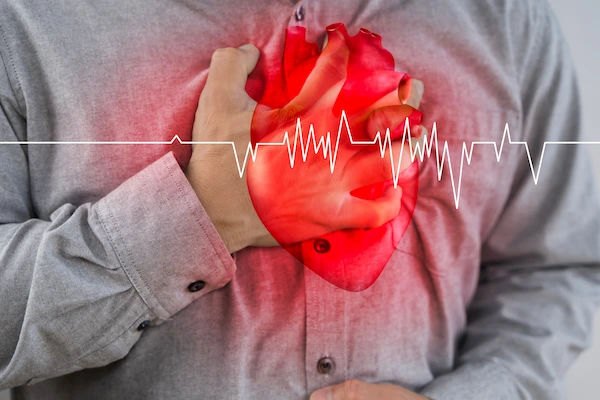- male
- 28 Years
- 29/01/2025
I'm 28 and I've noticed my blood pressure is around 160100 lately. Can you help me understand why this might be happening and how I can bring it down naturally?
Answered by 1 Apollo Doctors
High blood pressure can be caused by various factors such as stress, unhealthy diet, lack of physical activity, smoking, excessive alcohol consumption, and genetics. To reduce high blood pressure naturally, you can try the following. Maintain a healthy diet rich in fruits, vegetables, whole grains, and lean proteins. Limit your salt intake. Engage in regular physical activity such as brisk walking, jogging, or swimming. Manage stress through techniques like meditation, yoga, or deep breathing exercises. Limit alcohol consumption and quit smoking. Ensure an adequate amount of quality sleep. Consider incorporating foods rich in potassium, magnesium, and calcium into your diet. If these lifestyle changes do not effectively lower your blood pressure, you may need medication.
Dr. Mubarak Suggests...
Consult a Cardiologist
Answered 04/07/2025
0
0

More Cardiology Health Queries
View allI've been experiencing heart palpitations with a rate of 130bpm for the past 4 months, and I also have chest pain. I'm only 17 years old. Can you help me figure out what's going on? I saw a physician, but I'm still not feeling better. What's the issue?
heart palpitations (130bpm) and chest pain for 4 months, it's essential to take your symptoms seriously and seek specialized medical attention. Although you've consulted a physician, consider seeking a second opinion from a cardiologist.
Answered by 1 Apollo Doctors
I'm really worried about my dad. He's 50 and has been dealing with some health issues for the last ten days. He fainted last Saturday and his blood pressure dropped to 9363, with a fever of 102F. Our regular doctor gave him paracetamol, but then the same thing happened again on Sunday. We rushed him to another doctor who found moderate pericardial effusion and admitted him to the ICUU. They ended up putting in a temporary pacemaker because his pulse rate was falling below 50 bpm. It seemed to help, but then after they removed the pacemaker, his atrial fibrillation was varying quite a bit. The doctor adjusted his medication, and now the AF is still shifting between 110 and 130. They mentioned something about fluid dissolving, but I'm not sure what the next steps should be. Any advice on how we should proceed?
It sounds like your father has been through a lot with the pericardial effusion and subsequent atrial fibrillation. It's good to hear that 90% of the fluid has been dissolved. To continue managing the atrial fibrillation, the doctor may prescribe medications such as Metoprolol (25-50mg twice daily) to help control the heart rate. Additionally, blood thinners like Warfarin (2.5-5mg once daily) may be prescribed to prevent blood clots. It's important to monitor his heart rate and rhythm regularly and follow up with the doctor for further evaluation and management.
Answered by 1 Apollo Doctors
I'm a bit concerned because my ECG showed a short PR interval of 109. I'm not experiencing any symptoms right now, but Im worried if this could lead to any future health problems. Should I be worried about this?
Short PR interval on ECG can be a sign of an abnormal electrical pathway in the heart. This can sometimes lead to a condition called Wolff-Parkinson-White syndrome, which may increase the risk of certain heart rhythm problems. Since you have no symptoms currently, it is important to monitor your heart health regularly. In case of any symptoms like palpitations, dizziness, or fainting, you should consult a cardiologist. However, for now, no specific treatment is needed.
Answered by 1 Apollo Doctors
Disclaimer: Answers on Apollo 247 are not intended to replace your doctor advice. Always seek help of a professional doctor in case of an medical emergency or ailment.




